If you’re looking for a small, sweet and ridiculously adorable dog breed, you might consider the Morkie dog. The Morkie is a cross between a Yorkshire terrier and Maltese. That is why people sometimes call Yorkie Maltese mix or Maltese Yorkie mix. The American Kennel Club does not recognize the Morkie hybrid as a “bona fide” breed.
Morkie Content Overview:
- History
- Different names
- Appearance and Characteristics
- Personality and Temperament
- Health & problems
- How to take care
- Puppy Information
- Puppy price
- Things to consider adopting a puppy
- Advantages & Disadvantages
- Photo gallery
History of Morkie
The Morkie dog was bred to be a well-loved lapdog. The main objective for breeders was to create a small-sized dog with the low-shedding coat, and adorable teddy bear looks. It is unclear who first coined the name “Morkie”, but this hybrid has emerged from the United States in the past 20 years, becoming more popular in the UK and Ireland over the last decade. The first Morkie was conceived in the 1990s in the United States. Fortunately, there is quite a bit of history regarding the Maltese and Yorkshire Terrier breeds.
Morkie dog has no more history; if you like to get information about Morkie history, you can also check its two pure breed history.
Yorkshire terrier
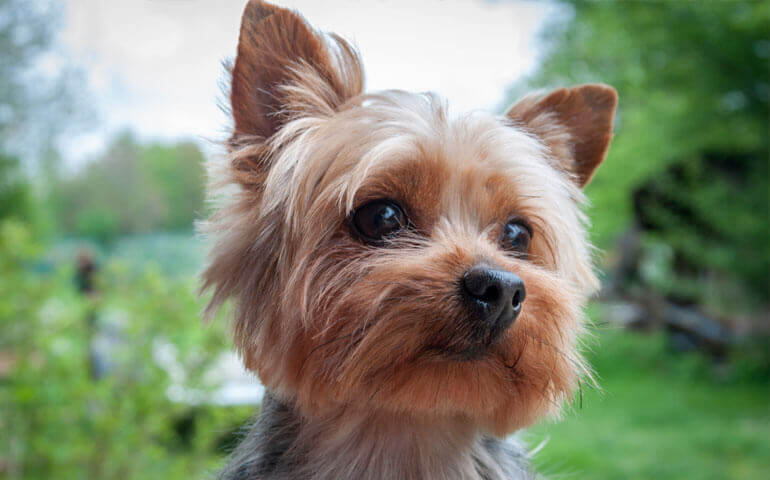
The Yorkshire Terrier is a small dog breed of terrier type dog breed originated from England. The breed comes from three different dogs: a male named Old Crab, a female named Kitty, and another female named unknown. The name Yorkshire Terrier was given to them on account of their being improved so much in Yorkshire.
- Height: 7-8 inches
- Weight: 7 pounds
- Life Expectancy: 11-15 years
- Group: Toy Group
Read also: How Long Do Yorkies Terrier usually Live?
Maltese
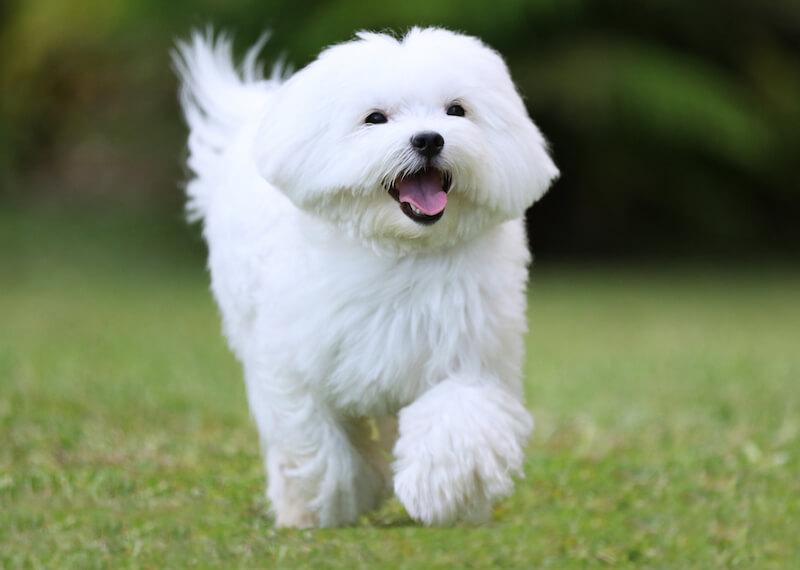
image credit: petcarefacts.com
The breed name and origins are generally understood to derive from the Mediterranean island nation of Malta. The Maltese had been recognized as an FCI breed under Italy’s patronage in 1954 at the annual meeting in Interlaken, Switzerland.
Maltese Dog Reviews – Real people reviews
- Height: 7-9 inches
- Weight: under 7 pounds
- Life Expectancy: 12-15 years
- Group: Toy Group
Different names or Types
- Maltiyork
- Malkie
- Malki
- Yorkiemalt
- Yortese
- Yorkese
Recognized Names
- American Canine Hybrid Club = Morkie
- Designer Dogs Kennel Club = Morkie
- International Designer Canine Registry® = Morkie
- Designer Breed Registry = Malki
- American Morkshire Terrier Club = AMTC
- Morkshire Hybrid Registry = MHR
Recognition
- American Canine Hybrid Club – ACHC
- Designer Dogs Kennel Club – DDKC
- Dog Registry of America, Inc. – DRA
- International Designer Canine Registry® – IDCR
- Designer Breed Registry – DBR
Morkie Appearance & Characteristics
The appearance of the Yorkie Maltese mix can vary depending on which attributes it inherits from each parent. Some are expressing more of a Yorkshire terrier appearance and some more of a Maltese look. They are a small breed dog, typically weighing between 4–15 lb.
Breed basic characteristics
| Origin | United States of America |
| Group | Toy Group |
| Size: | Small |
| Lifespan: | 14-16 years |
| Trainability: | Not very easy to train |
| Exercise Needs: | The fair amount of exercise |
| Grooming: | The great amount of maintenance |
| Barking: | Barks very little |
| Shedding: | Low-shedding |
| Protective Ability: | Not very Protective |
| Brushing: | Daily brushing |
| Hypoallergenic Breed: | Yes |
| Space Requirements: | A small apartment or large yards |
| Compatibility With Other Pets: | Good |
| Average Puppy Price: | Average $600 – $2000 USD |
| Height | 6-8 inches |
| Weight | 4–15 lb |
| Litter size | Avg. 3 to 5 puppies |
Sound
Morkies are suspicious of strangers or unusual sounds in their environment and are quick to alert owners.
Behavior
The Morkie has a wonderful temperament. They love to play but are also wonderful lap dogs that love to cuddle all day.
Size, Proportion, Substance
Size: They are a small breed dog, typically the average Morkie weighs around 4–15 lb and stands 6–8 inches tall at the withers.
Proportion:
Substance:
Serious Faults:
Head
Skull: not too prominent or round
Muzzle: The jaw and muzzle can be quite fine, making it prone to dental disease in later life.
Eyes: The Morkie should have a reasonable length in its muzzle, and has striking, dark eyes.
Ears: are small, carried erect and set not too far apart.
Teeth:
Serious Faults:
Neck, Topline, Body
Neck: neck are typically lean and sinewy
Topline: The back is level in topline, the ribs well sprung.
Body:
Serious Faults:
Forequarters
Shoulders:
Forelegs: Forelegs are straight, their pastern joints well knit and devoid of the appreciable bend.
Feet: The feet are small and round, with the pads black.
Hindquarters
Rear Legs:
Hind Feet:
Tail: the tail is generally held in a half curl to one side.
Coat
The coat of the Morkie is very soft. Easy to manage and can have the floor’s length like both breed of the Yorkshire and the Maltese. They are hypoallergenic and very low shedding to nothing.
Winter Coat:
Summer Coat:
Shedding:
Color and Markings
They are fine-boned dogs with a soft, wavy coat, usually either black and white, black and tan, or apricot, though other color combinations are common.
Coat Color and Markings
Common coat colors are Black, brown, and white. The coat is usually long and soft. Morkie ears can be pointed, like that of a Yorkie, or floppy, like that of a Maltese.
Gait
Personality and Temperament
Morkie Personality
Morkies (Maltese Yorkie mix) are a social dog and love to be played with other dogs. Morkies are excitable, energetic, confident, and loyal. It’s normally getting along well with other dogs and non-canine pets that they have been brought up with. Morkies can be destructive if left alone for extended periods; at such times can be prone to excessive barking. Morkies are good with children when introduced to them, and the child understands that screaming, waving their arms, or sitting down and crying are all signs to the dog to be protective, caring, and playful.
Morkie Temperament
Morkies are very playful and active small size crossbreed. This breed can be very difficult because of their stubbornness, which comes from the Yorkshire Terrier side, but they quickly get the point of what you want, so it is important to begin training early on in its life. They form strong attachments to owners as well as desire a lot of attention from their owners. Morkies (Yorkie Maltese mix) normally get along well with other dogs and non-canine pets that they have been brought up with it.
Activity Requirements
Morkies are also playful and will run to chase a ball for quite some time or find fun in interactive dog toys. They enjoy family playtime, walks and playtime in a fenced yard.
Behavioral Traits
Tiny and adorable, the Morkie is an affectionate crossbreed who loves people and will get along with your other pets. Despite their very small size, Morkies tend to make very good watchdogs because of their very high awareness levels regarding their surroundings and anything unusual happening around them.
Trainability
Training must be approached in a positive light, with the focus always on positive reinforcement rather than criticism and correction, for this small breed tends to become sullen and uncooperative if treated harshly. The Morkie is a clever but stubborn, dog and training takes time and patience.
Health & Problems
More health & problems
Morkies are usually healthy dogs. As puppies, they can suffer from low blood sugar. Morkies might also suffer from health issues that are common with Yorkshire-Terries and Maltese dogs:
- Tracheal Collapse
- Cataracts
- Medial Patellar Luxation
- Hydrocephalus
- Kidney Failure
- Glaucoma
- Dental problems
- Collapsed trachea
- Reverse sneezing
- Heart Disease
Generally speaking, a Morkie that leads a healthy life and is given the proper care it needs to thrive in life will live an average lifespan of anywhere between 10 to 13 years.
Feeding Plan
It’s a very small dog, but don’t let that fool you. It’s a hungry breed. It wants to eat all the time, and you have to make sure it does not. Do not let its whining fool you into thinking that this dog will be okay with you feeding it all the time.
Feed your Morkie on the same schedule every day. If you stick to regular feeding times and take away uneaten food after your puppy has had time to eat, you will encourage a regular potty schedule. Morkies are small, so it’s important to control the portion to make sure your puppy doesn’t get obese and regulate its potty schedule.
Living conditions
It will do equally well in an apartment or condo as well as a house. The Morkie does not require a large yard for exercising as it is a small dog and will get most of its exercising on its own.
How to take care of Morkie?
Exercise
He doesn’t require too much exercise. A brisk walk in the morning and an evening stroll will provide Morkie with the exercise he needs to stay healthy and fit. Walking should be moderate and at a fairly brisk pace. Do keep in mind that a brisk pace is a running pace for a little Morkie. The walk should be at a place where the dog is moving along steadily; but not out of breath.
Grooming & Bruising
The low-shedding coat is very fluffy and fine and will quickly develop knots if left unattended. Morkies have a long, soft, and fine coat and require daily brushing to avoid tangles. Brushing also removes dirt, dandruff, and dead hair and distributes natural oils through your dog’s coat to make it shiny. This frequent brushing of their coat isn’t exactly to avoid them shedding excessive hairs, as Morkies aren’t excessive shedders.
How to groom Morkie
The hair growing around your Yorkie’s forehead can get into its eyes and cause tears, which can stain its hair. Use a small comb to pull this hair away from your Morkie’s face gently.
Gently remove any mats around the ears with trimming shears.
Check its skin and hair for any possible issues. Such problems could include fleas, ticks, skin irritation, dry patches, and inflammation. Daily inspection can reveal these issues early enough to have them easily treated by a veterinarian.
Use a cup or sink sprayer to wet your dog’s coat with warm water gently. Be sure to use a shampoo specially formulated for sensitive skin.
Dental Health Check-up
Proper dental health care is as important for every dog; similarly, it is very important for the Morkie. Brush your pet’s teeth at least 2 or 3 times a week. You get special toothpaste and toothbrush for the puppy, and your vet can guide you on how to use them. If you don’t attend to your pet’s teeth, he can experience tartar build-up. This can lead to gum disease and tooth loss. Not only that, bad teeth can affect other parts of the body too.
Love & affection
Love and affection are useful for every dog. Suppose you give love and affection to your Morkie puppy, then the dog will love you back. Your Yorkie will be a member of your family, So Give lots of love and affection to your cute puppy. Most importantly, spend time with your dog because that your dog needs love and affection.
Feed Healthy food
They are high energy dogs and play a lot; they need a proper and healthy diet to keep the pet fit. A Yorkie needs about a cup of healthy meal per day that contains high-quality feed like meat, milk and dog food.
Feeding a healthy meal in the dog’s life is the most important. On this day, many healthy foods are available on the market so that you can choose any healthy food for your dog. Healthy food is the most important for dog health care. The young Morkie dog is not a hearty eater as most breeds his size. He must often encourage meat juices or bacon grease mix in the food to entice him to eat.
The following items should never be feed to Morkie
- Alcohol, beer, wine or liquor
- Chocolate, coffee, or tea
- Grapes or raisins
- Moldy or spoiled food of any kind
- Onions, chives, and garlic
- Poultry bones
- Salt & salty foods
- Tomato leaves stem or unripe fruit
- Yeast dough
Puppy information
Morkie Puppy Training
Training sessions should always be happy and fun times filled with yummy rewards and enthusiastic praise. With positive training techniques, Morkie can be a wonderful student. They need a gentle and patient person to work with them during training sessions. Harsh methods will cause the Morkie to balk and shut down, not to mention that this type of dog training is counterproductive.
Crate training
The crate is an important training tool for almost every dog, especially for families with young children. This training is important for any owner for trips to the vet, travelling, boarding, etc. Crate training your dog can be a painless process if you follow the steps in this guide and provide lifelong benefits to your dog.
Crate your Morkie when you are not home, or confine it to a small area where it will not cause damage if it has an accident. Keeping your Morkie in a crate or restricted area lessens the chance of an accident because it won’t want to soil its sleeping spot.
Most owners wonder how long should a puppy be in a crate. See the table below to determine how long you can Crate your dog based on their age.
| Dog’s age | Maximum time in a crate |
|---|---|
| 8-10 weeks | 30-60 minutes |
| 11-14 weeks | 1-3 hours |
| 15-16 weeks | 3-4 hours |
| 17+ weeks | 4-5 hours |
| Adult healthy dogs | 8 hours |
Behavioral training
Behavioral training is very important for any dog. All of us, dog owners, need to administer some dog behavior training at some point in time. Behavioral training is very helpful for taking care of the dog. First of all, if you want to train your puppy to Behavioral training, find out some common behavioral issues like breaking, aggression, food guarding, howling, mouthing and chewing, separation anxiety, etc. and stop these behavioral issues and train your dog easily.
Obedience training
Obedience training usually refers to a dog’s training, and the term is most commonly used in that context. It ranges from very basic training, such as teaching the dog to reliably respond to basic commands such as “sit,” “down,” “come,” and “stay,” to high-level competition. Training a dog in obedience can be an ongoing and lengthy process depending on the dog, the methods used, and the skill and understanding of both the trainer and the handler.
Socialization
The Morkie is a dog you can get along with very well easily. Still, basic training, growth in a harmonious environment from an early age and constant socialization are essential. The first step in puppy socialization is learning simple but important habits. It is important to feel comfortable when held on a leash, when its master makes it a bath or when the master touches its food.
How to Potty Train Morkie Puppies
You will need to take your Morkie’s size and temperament into account to train it effectively. The process takes some time and patience, but it will pay dividends when you have a well-trained adult dog if you do it correctly.
Morkie puppies for sale
If you are thinking of buying a Morkie or looking at a puppy for sale, then here is some helpful information to influence your decision:
Morkie puppy price
The average Morkie prices $600USD to $2000USD.
Morkie rescue
- Tiny Paw Rescue
- National Mill Dog Rescue
Find Morkie puppies
To find an adoptable Morkie, check out these two sites: Petango and Petfinder. They operate right across North America, automatically collecting information from every pound, shelter, and rescue group in real-time to let people know what dogs are available.
Things to consider adopting a Morkie
If you’re seriously considering adopting a Morkie, you should know.
- Before you adopt a Malkie, consider how much time your new family member will spend alone. Remember, a puppy requires constant attention.
- Before you adopt a puppy, ask yourself if you can walk your dog several times throughout the day.
- You also have the advantage of knowing that your dog is physically able to “hold it” for several hours at a stretch.
- Ask anybody who has adopted an adult dog then adopts an adult dog.
- If you’re unsure whether the new dog you’ve chosen is right for your family and lifestyle, consider fostering before committing.
Advantages of Morkie
- They Very cute dog
- Live a long time – at least 12, 14 or more years on average
- Don’t need as much exercise
- Their small size means they don’t need as much room
- Can travel with you fairly easily
Disadvantages of Morkie
- They can get injured very easily
- Not for a rambunctious family
- They can be much more sensitive to cold weather
- They can be challenging to house train or potty-train
Morkie Photo gallery
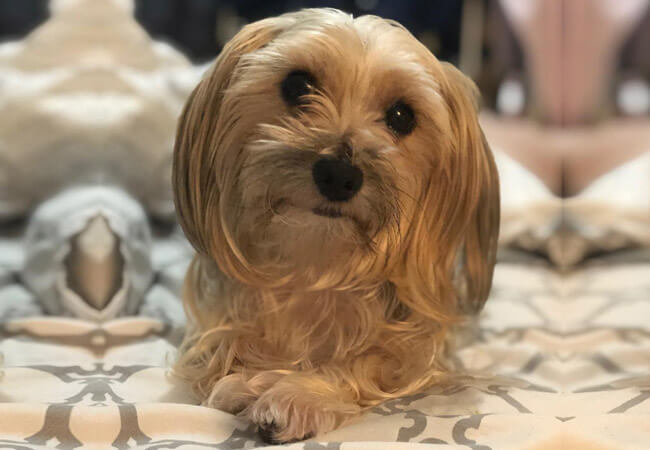
morkie by @princessprincessa
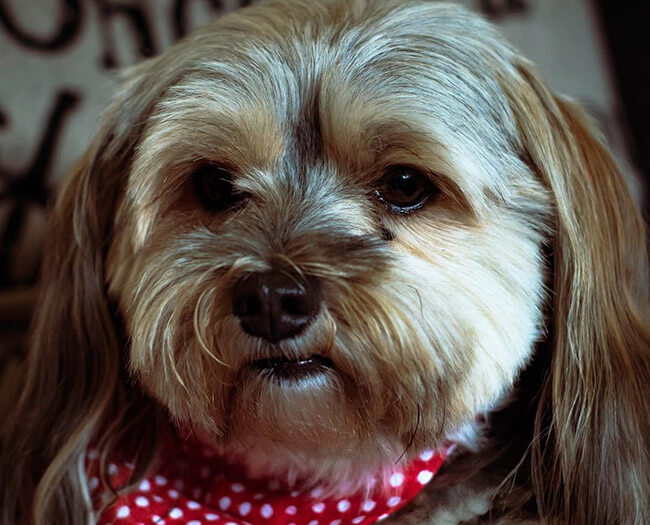
by @princessnalathemorkie
Got some questions? Or some suggestions? That’s why we’ve got a comments section on this blog! You can feel free to leave a comment or two down below, and we’ll get back to you as soon as possible!
We love reading your messages……
Also read: Top 10 benefits of having a Beagle
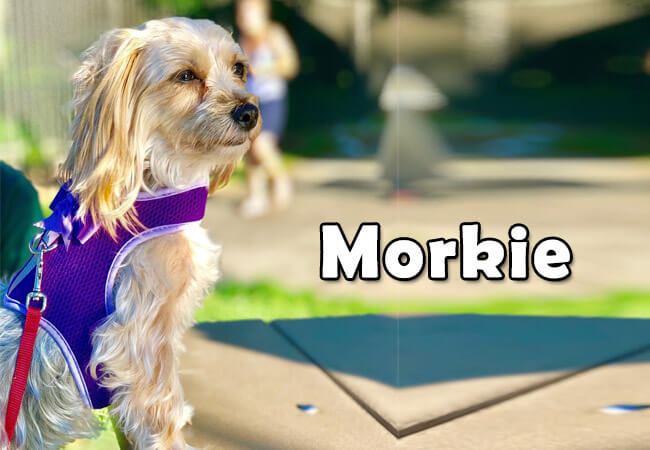
Hi I am writing to you to see if you could please add the American Morkshire Terrier Club & Morkshire Hybrid Registry to your list of Recognized Clubs and Registrys. The American Morkshire Terrier Club (AMTC) and Morkshire Hybrid Registry (MHR) call this adorable breed the “Morkshire Terrier”.
Thank You,
Kayla
AMTC
amtcusa.com